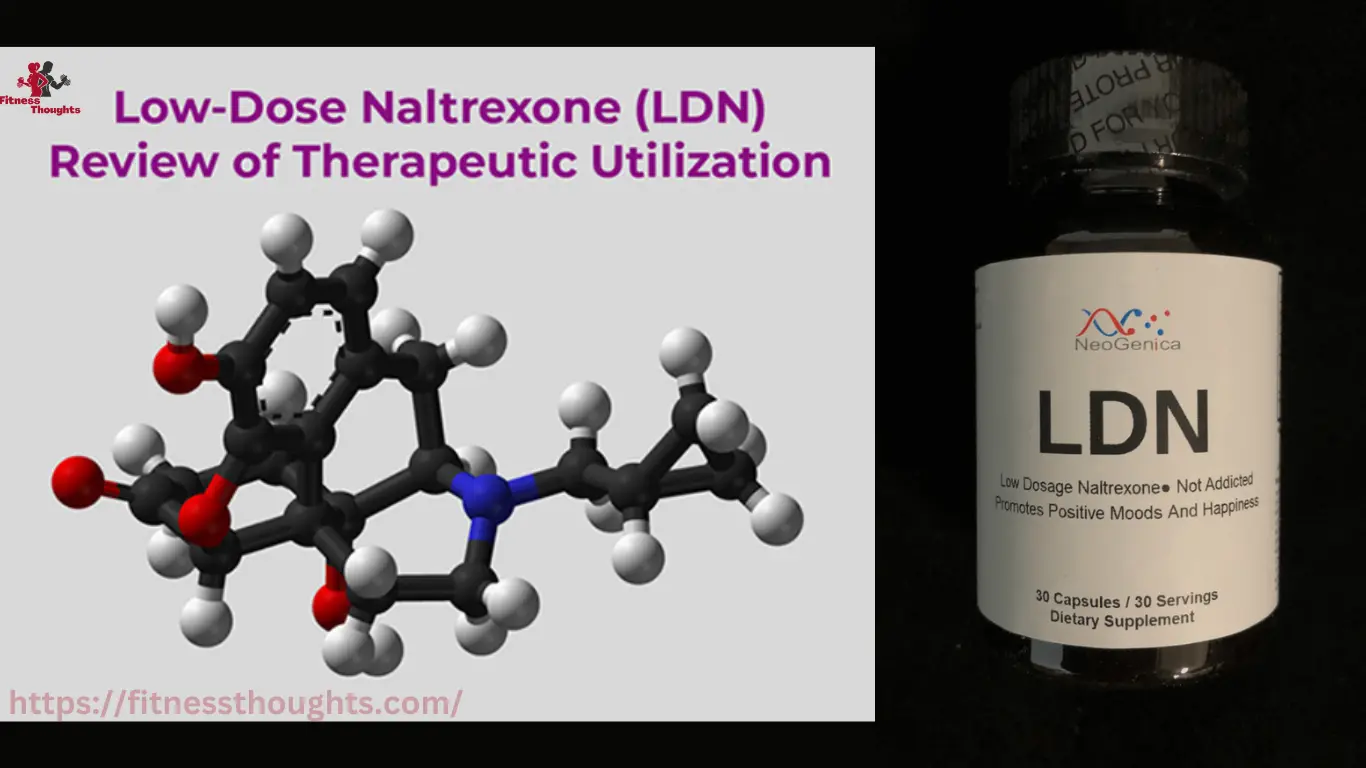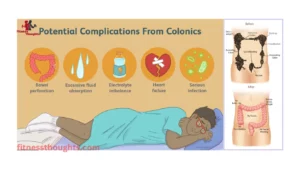Low Dose Naltrexone (LDN) has emerged as a significant player in the field of weight loss and obesity treatment. Originally known for its role in treating opioid and alcohol use disorders, LDN’s off-label use in weight management has gained attention. This report delves into the multifaceted aspects of LDN, its efficacy, and its role in weight loss, supported by direct quotes and findings from various sources.
Understanding Naltrexone
Naltrexone, primarily an opioid antagonist, is FDA-approved for treating alcohol and opioid use disorders. It operates by blocking opioid receptors, thus reducing cravings and the pleasurable effects of opioids. As stated by the Northern Illinois Recovery Center, “Naltrexone blocks and binds opioid receptors, yet it also suppresses and reduces opioid symptoms and cravings.”
The Shift to Low Dose Naltrexone for Weight Loss
The transition to using LDN for weight loss is rooted in its appetite-suppressing properties. A systematic review in The Archives of Medical Science observed that “naltrexone combined with bupropion (or Wellbutrin) was effective in helping overweight subjects lose weight.” This combination, often prescribed as Contrave®, has shown promising results in obesity treatment.
Supporting Weight Loss with LDN:
- Appetite Control: Naltrexone may reduce appetite by making eating less pleasurable and food taste less appealing.
- Impact on Insulin and Growth Hormone: LDN might interfere with insulin secretion and improve growth hormone levels, though more research is needed.
- Effect on Inflammation: LDN is particularly beneficial in autoimmune diseases like Crohn’s disease and Hashimoto’s, where inflammation contributes to weight gain.
Mechanisms of Action in Weight Loss
LDN’s role in weight loss can be attributed to several mechanisms:
Appetite Regulation: LDN helps normalize metabolism and aligns appetite with resting energy expenditure. The Northern Illinois Recovery Center notes, “Taking Naltrexone in the early morning can reduce appetite by 30%, aiding weight loss.”
Mood Improvement: By increasing dopamine and serotonin production, LDN reduces stress and anxiety, which can decrease emotional eating.
Sleep Improvement: Addressing sleep issues is crucial, as poor sleep can lead to hormonal imbalances and weight gain.
Insulin Resistance Reduction: LDN regulates cellular resistance to insulin, contributing to weight loss.
LDN in Autoimmune Conditions and Inflammation
LDN’s effectiveness extends to autoimmune diseases like Hashimoto’s, where inflammation contributes to weight gain. Paloma Health highlights, “Because inflammation and autoimmune conditions may be behind weight gain (as is the case in Hashimoto’s patients), there may be some benefits to using this medication if you have an autoimmune disorder.”
Safety and Side Effects
LDN is generally well-tolerated with minimal side effects. Commonly reported side effects include headache, fatigue, GI upset, anxiousness, and insomnia. However, it’s important to consult healthcare professionals before starting LDN, especially for individuals with specific health conditions.
Interesting Facts about Naltrexone
- Versatile Medical Applications: Beyond its primary use for alcohol and opioid use disorders, Naltrexone has shown potential in treating a wide range of conditions. This includes chronic pain, autoimmune diseases like Crohn’s disease and multiple sclerosis, and even certain types of cancer, as highlighted by Thrive Wellness LA.
- Impact on Endorphin Production: Naltrexone’s ability to temporarily bind to opioid receptors in the brain promotes the compensatory production of natural endorphins. This unique action not only affects the body’s immune system but also slows the production of cells that can negatively influence various medical conditions, as mentioned by Thrive Wellness LA.
- Non-Addictive Nature: A key aspect of Naltrexone, especially significant in the context of opioid and alcohol use disorders, is its non-addictive nature. As Northern Illinois Recovery Center points out, Naltrexone is not an opioid, does not cause withdrawal symptoms upon stopping its use, and has no potential for abuse.
- Influence on Eating Habits: Naltrexone may alter the way food is perceived, making it less pleasurable. This unique effect on the sensory experience of eating can contribute to its effectiveness in weight management, as indicated in the information from Paloma Health.
- Role in Hormonal Regulation: Naltrexone’s interaction with the body’s hormonal system is multifaceted. It not only interferes with insulin and growth hormone secretions but also has implications for thyroid function, particularly in conditions like Hashimoto’s thyroiditis, as discussed by Paloma Health.
FAQs about Low Dose Naltrexone (LDN) Weight Loss
What is Naltrexone?
Naltrexone is FDA-approved for treating alcohol use disorder (AUD) and opioid use disorder (OUD). It’s available as an extended-release injectable and in pill form. Naltrexone is part of a comprehensive treatment plan that includes counseling and behavioral approaches.
Who Should Use Naltrexone for Weight Loss?
It’s particularly effective for individuals with conditions like sleep apnea, hypothyroidism, Type 2 diabetes, chronic inflammation, or low adult growth hormones. However, it’s not a one-size-fits-all solution and works best in conjunction with lifestyle changes.
What is the Role of Naltrexone and Bupropion in Weight Loss?
Naltrexone, an opioid receptor blocker, is traditionally used for treating opioid addiction and alcohol dependence. It might reduce food consumption by blocking certain receptors. Bupropion, a norepinephrine-dopamine reuptake inhibitor, is used for depression and as a smoking cessation aid. It’s thought to suppress appetite.
What is Low Dose Naltrexone (LDN)?
LDN is a lower dosage form of Naltrexone, a medication primarily used to treat alcohol and opioid use disorders. In low doses, it’s being explored for other purposes, including weight loss.
How does LDN aid in weight loss?
LDN can help with weight loss through several mechanisms: it may curb appetite, improve mood by increasing dopamine and serotonin production, regulate sleep patterns, and reduce insulin resistance. These factors collectively contribute to weight management.
Is LDN effective when used alone for weight loss?
LDN is often more effective for weight loss when combined with other medications like bupropion (as in the drug Contrave®). It’s also recommended to use LDN as part of a broader treatment plan that includes dietary and lifestyle changes.
What are the common side effects of using LDN for weight loss?
Side effects of LDN are generally minimal and may include headache, fatigue, gastrointestinal upset, anxiousness, dizziness, insomnia, muscle pain, and joint pain.
Can LDN be used for weight loss in individuals with autoimmune diseases?
Yes, LDN may be particularly beneficial for individuals with autoimmune conditions like Hashimoto’s thyroiditis, where inflammation contributes to weight gain. It’s thought to suppress inflammatory cytokines, potentially improving thyroid function and aiding in weight loss.
How should LDN be administered for weight loss?
The dosage and administration of LDN for weight loss should be determined by a healthcare professional. It’s typically taken in the morning to reduce appetite throughout the day.
Is LDN a standalone solution for obesity and weight management?
While LDN can aid in weight loss, it’s not a standalone solution. It works best when combined with a healthy diet, moderate exercise, and, in some cases, other weight-loss medications.
Low Dose Naltrexone presents a promising avenue for weight loss, particularly for individuals with underlying health conditions like insulin resistance or autoimmune diseases. Its multifunctional approach, impacting appetite, mood, sleep, and insulin resistance, positions it as a valuable tool in the arsenal against obesity. However, its use should be part of a comprehensive treatment plan, including dietary and lifestyle changes, under medical supervision. As research continues to evolve, LDN’s role in weight management could become more defined, offering new hope for those struggling with weight issues.




